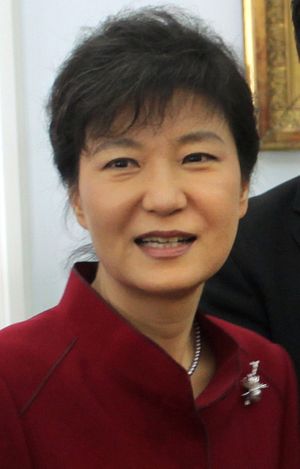With fifteen seats in the National Assembly opened up by local elections last month, the largest number in South Korean history, news outlets have dubbed the upcoming by-election on July 30 a mini-general election. Although the Saenuri Party won eight of the seventeen contested gubernatorial and mayoral posts in June, the ruling party is not expected to perform well in the upcoming political contest as public support for the Park administration has continued to drop in light of the controversies surrounding its nominees for key cabinet positions. As it stands, President Park’s party will need to win four more seats on top of the nine seats opened up by Saenuri assemblymen to win a majority in South Korea’s unicameral legislature. Thus, a poor showing by the Saenuri party at the by-election might have long-term consequences for the conservative administration’s ability to govern.
According to a Gallup poll, President Park’s approval rating hit an all-time low of 42 percent in the fourth week of June. This figure was even worse in Seoul where only 37 percent of the people surveyed viewed the government favorably. Among the respondents who saw the government in a negative light, around 40 percent underscored the administration’s debacle over its ministerial candidates as the main reason for their disapproval.
The fact that the president, and the conservative Saenuri party by association, is polling so low in the capital and the surrounding regions bodes poorly for its chances in the by-election. Of the fifteen seats that are contested, five are in Gyeonggi Province, the region surrounding Seoul, where the president currently maintains 44 percent approval, above the national average but much lower than in the conservatives’ home turf of North and South Gyeongsang Provinces. Taking into account how the Saenuri candidate for governor of this province, Nam Kyung-pil, narrowly won with 50.4 percent of the votes in the local elections, the Saenuri party is bracing for a difficult race ahead.
Saenuri Party, with nine of its incumbent seats open, has more to lose in this month’s by-election than the opposition New Politics Alliance for Democracy (NPAD), which only has four. Further playing into the opposition’s favor, four of the contested constituencies are in South Jeolla Province and Gwangju metropolitan, the traditional home ground of the progressive parties. In addition, two of the National Assembly seats opened by the Saenuri Party are in North and South Chungcheong Provinces where NPAD candidates successfully won the gubernatorial posts with 49.8 percent and 52.2 percent of the votes respectively.
Meanwhile, many in the ruling conservative party have expressed doubts about not only their ability to win a majority in the National Assembly, but also to retain their existing seats. Some estimate that only four of the contested seats will remain in Saenuri hands after the election. The party is also experiencing an internal struggle as party assemblymen begin to divide along pro-Park and anti-Park lines ahead of its leadership race at the national convention on July 14.
Despite these weaknesses stalking the ruling party, the NPAD is dogged by criticism for its inability to effectively take advantage of these favorable conditions. Furthermore, the NPAD leadership has been accused of playing dirty politics when they nominated Kwon Eun-hui, the former chief of criminal investigation at the Suseo police station in Seoul, as the party’s candidate for the open National Assembly seat for Gwangju metropolitan. Kwon had been instrumental in bringing the Seoul Metropolitan Police Commissioner Kim Yong-pan to trial during an investigation into whether the National Intelligence Service had manipulated public opinion on behalf of Park Geun-hye during the 2012 presidential election. After Kwon’s nomination, the Saenuri Party accused the NPAD of rewarding former public officials for political favors. Some members of the NPAD also criticized the leadership for making a move that opened the party up to such accusations.
Nonetheless, the overall outlook for the Saenuri Party looks much less promising than that of the main opposition party. At the same time, as we have seen with the local elections in June, South Korean elections may yet defy expectations as the two parties continue to posture and make changes for the next two weeks.

































